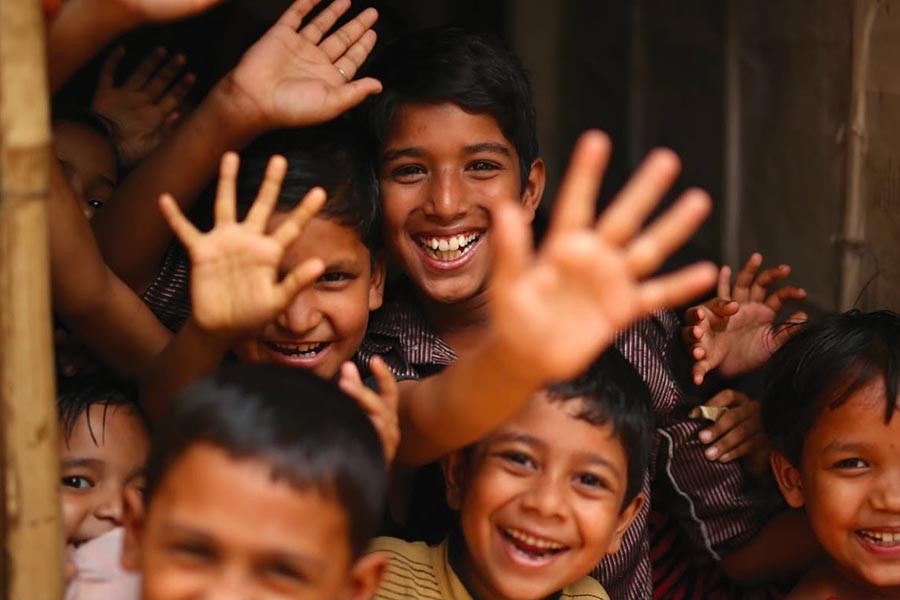
Published :
Updated :

Underscoring the importance of childhood in making Bangladeshi children's later life meaningful, the World Bank (WB) has assured the country of providing a loan of around US$ 300 million. In essence, it comes as a financial support to enhance human capital formation aimed at investing in early childhood development (ECD). The WB is set to provide the fund under the Beneficiary Enhancing Investment Benefit for Early Years project for human capital formation. The Local Government Engineering Department (LGED) and the Ministry of Women and Children Affairs (MoWCA) will work in tandem for implementation of the project devoted to enhancing community support services, as well as developing women and childcare system across Bangladesh villages.
As has been acknowledged universally, the early years lay the foundation for human growth and development. These formative years set the stage for life-long human capital formation. As a corollary, ensuring sufficient nutrition and all-round cognitive development in the children's early years becomes imperative. These developments together can maximise children's health, learning, intelligence and productivity as well as emotional and social well-being, the WB notes. In recent years, children in different sectors in rural society have been seen undergoing a series of positive changes. Unfortunately, the decades-old stagnancy coupled with socio-economic impediments has continued to detract from these achievements. Under the World Bank project, the LGED will be seen working to enhance the capacity of the Union Parishads (UPs) and the staff working for community support services. A major responsibility lies with the MoWCA. It will have to extend support to the early childcare and women care systems. The ministry will be given the task of transferring cash to mothers for childcare, and enhancement of their nutrition level, officials involved with the village-based project opine.
According to the World Bank, child-centred programmes in Bangladesh accounted for only about 2.0 per cent of the total social protection budget in the fiscal year 2020-2021. The WB has noted that appropriate resource allocation in line with national priorities is critical to realising returns from investing in ECD. The Bretton Woods institution defines the investment as one of the most critical ones a country can make to break the cycle of poverty. To the dismay of freelance economists and social activists, extreme as well as moderate poverty still plagues pockets of the far-flung areas in the country. It's the obstinate presence of poverty in one form or another which leaves different types of deleterious impacts on both growing children and mothers. Optimists look to the days when ECD will be properly utilised to play a decisive role in eradicating poverty from the areas beset by the socio-economic scourge. People involved with the programme must commit themselves to realising the ultimate goal. The goal is to ensure desired development of childhood through enhancement of human capital formation.
Past experiences, however, show that a tiny section of negative forces, greedy as it is, often spoils a potentially beneficial social endeavour. Irregularities in the distribution of the programme's benefits must not be tolerated. In this contet the World Bank's appreciation and concern are notable. Bangladesh has achieved a series of successes. They include improving development outcomes as well as reducing child mortality. But health and learning outcomes for children remain a challenge. The country accounts for 4.0 per cent of the stunted children worldwide. It has a major impact on learning outcomes. Now is the time to overcome this early childhood loss.


 For all latest news, follow The Financial Express Google News channel.
For all latest news, follow The Financial Express Google News channel.